Bring Agricultural Solutions
Bring Agricultural Solutions

GAV Inc. is pioneering the first U.S.-based cashew processing facility to address the market’s need for high-quality, competitively priced cashews. With a vast network of over 6,000 out-grower cashew farmers, we’re bringing innovation and efficiency to the supply chain. Our approach minimizes reliance on overseas processors, enhances product freshness, and supports U.S. manufacturing.
Strong Supply Chain: Leveraging a reliable network of 6,000+ out-grower farmers, ensuring a consistent, year-round supply of raw cashews.
Cost Reduction: By processing domestically, we remove unnecessary margins (importer, distribution, co-packing), delivering quality at a lower price than India and Vietnam.
Faster Logistics: U.S.-based facilities mean shorter logistics cycles, providing a fresher product to meet U.S. demand efficiently.
Market Transformation: Our pioneering model reshapes the industry by enhancing value, reducing costs, and maximizing returns for partners in the supply chain.
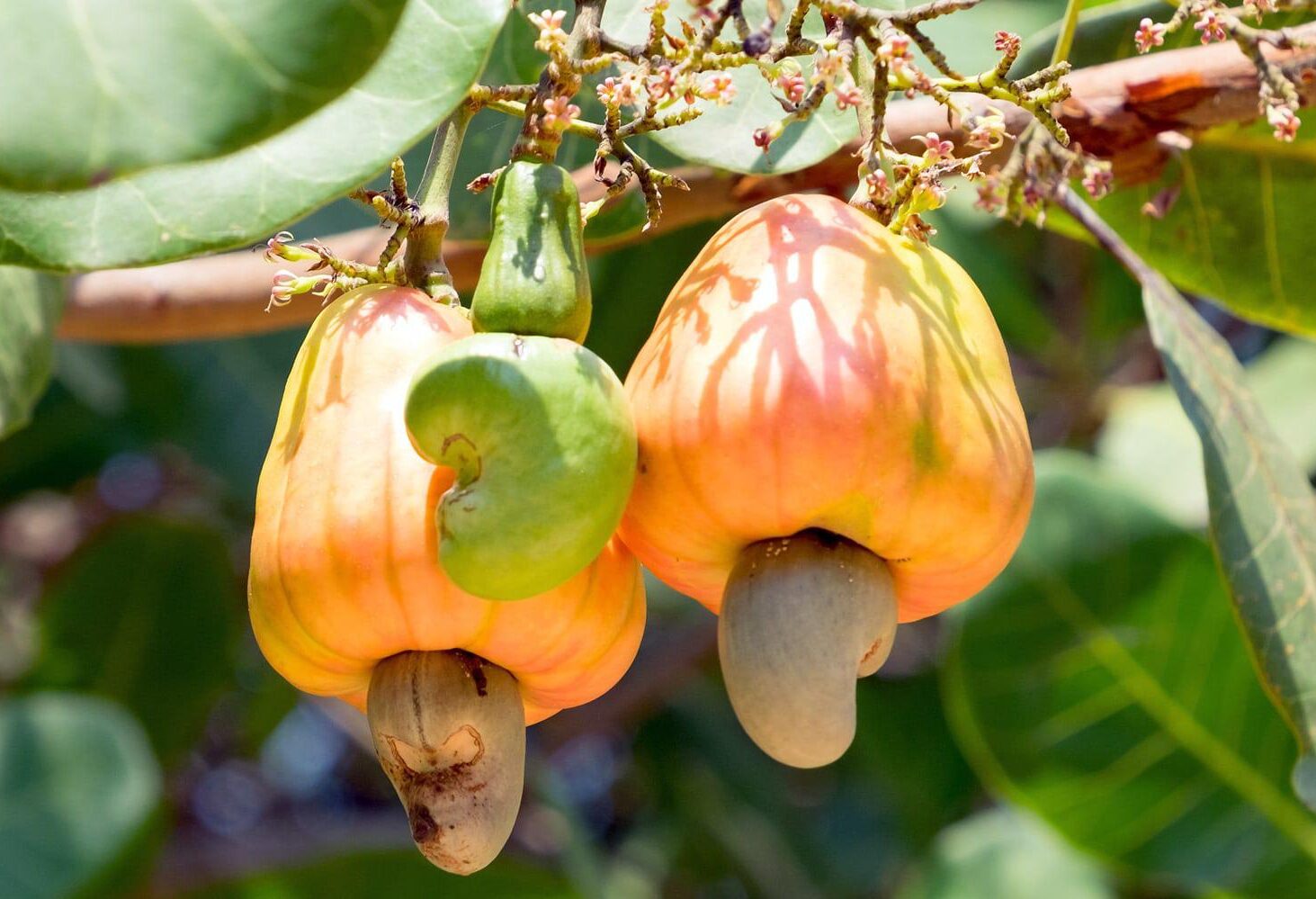
The global cashew supply is dominated by Ghanaian growers who, via Ghanaian forwarding firms, send raw cashews to brokers and consolidators in India and Vietnam. These consolidators process and bulk-package cashews in 25lb and 50lb vacuum-sealed, gas-flushed food-grade pouches, grading them by shape, size, and color to meet international standards.
Our approach saves millions in shipping costs, transit time, and operational expenses.
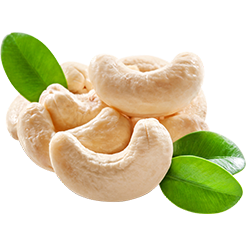
Inefficiencies in the Current Supply Chain to U.S. Markets
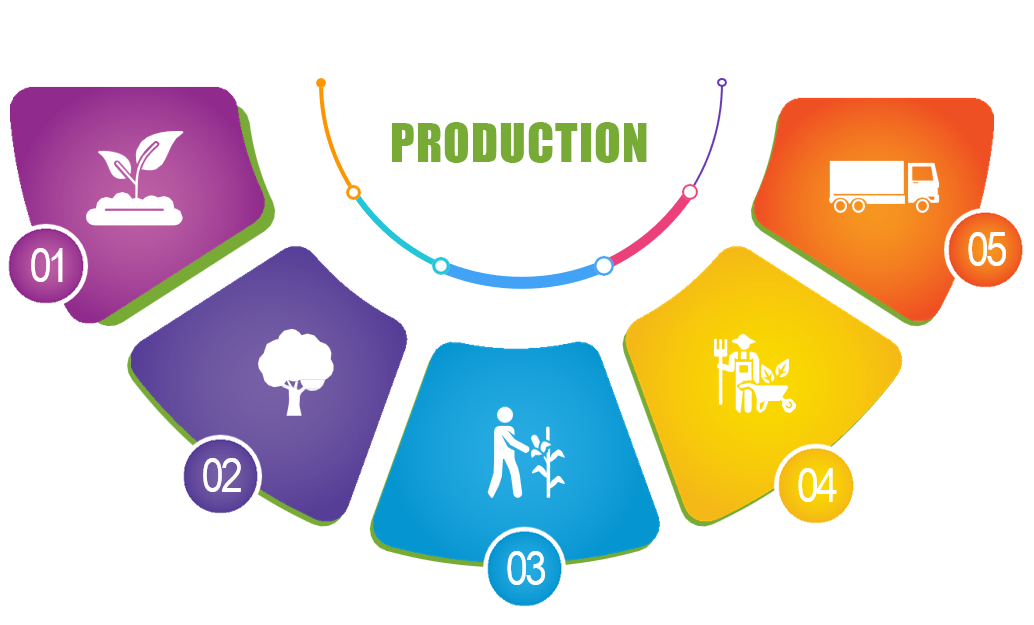
1. PLANTING: Farmers Plant seedlings in July September.
2. TREE: Tree yields nuts from year 3 onwards (Grafted trees from Year 2)
3. HARVEST: Farmers or Labor harvest tree. Nuts are removed from apples.
4. AGGREGATION I: Local shopkeeper or agent buys nuts at the farm gate.
5. AGGREGATION II: Local trader buys nuts from previous stage.
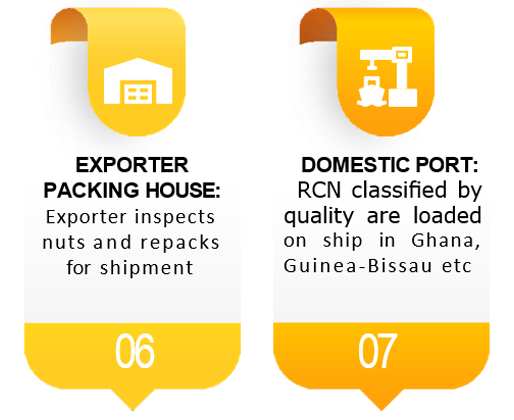

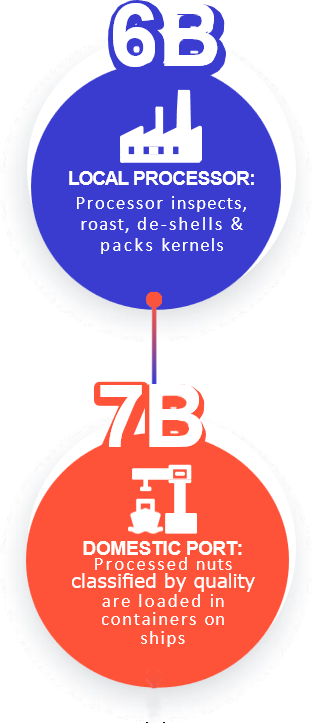
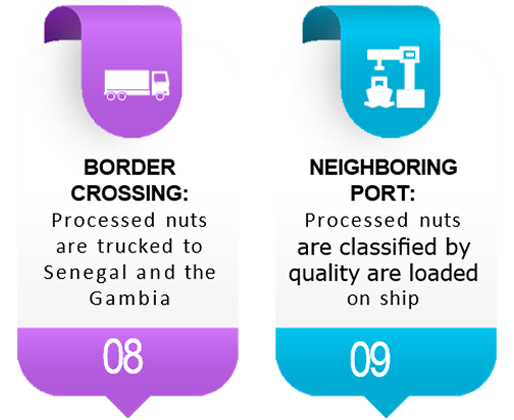

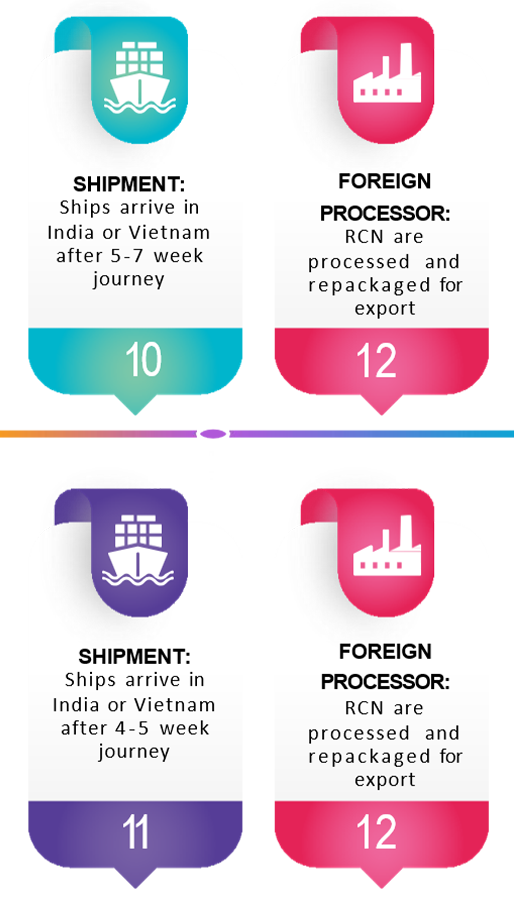

14. RETAIL:
Importers sell nuts to retailers for packaging, branding, and resale to consumers
15. CONSUMPTION:
Consumers buy nuts or cashew brand products like cashew butter, milk, flour etc
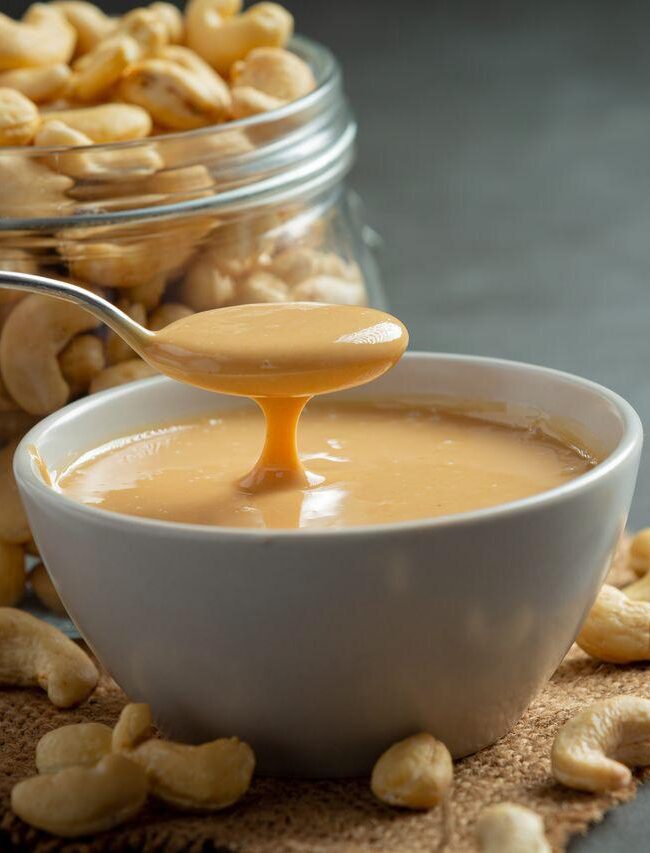
The United States is a key market for global cashew trade but relies heavily on imports from Africa, Brazil, and India to meet demand. It remains the largest buyer of processed cashews from India and Vietnam, with Brazil also supplying a significant portion. Together, these countries control 85% of the U.S. import market share, highlighting a concentrated and established import trend.
The largest suppliers of shelled cashews to the U.S. are Vietnam (50%), India (27%), Brazil (7%), Côte d’Ivoire (2%), Mozambique (2%), and other importers (5%). This creates a U.S. cashew market ripe for disruption.
Since the 1920s, fragmented brokers have dominated the U.S. cashew supply chain, importing finished products and contributing to a monopoly-like structure.
The traditional cashew industry consists of three main participants:
Aggregators / Processors:
Primarily based in Vietnam & India, handling large-scale processing.
Raw Material Producers:
Located in Ghana, Tanzania, Ivory Coast, India, Mozambique, and Brazil.
Cashew Consumers:
Concentrated in the U.S., Canada, Russia, the EU, and Japan.
Our approach reduces financial and environmental costs through strategic U.S.-based cashew processing. By establishing the first commercial processing facility in the U.S., we cut food miles and minimize waste in the supply chain.
Community Investment:
We support local infrastructure in African farming communities, including schools and clinics, reducing the need for cashews to be processed in East Asia and minimizing additional costs.
We’re building resilient sourcing strategies to adapt to evolving food supply chain dynamics. Our investments in cashew plantations and community partnerships in Africa will increase crop yields and global supply by over 30%.
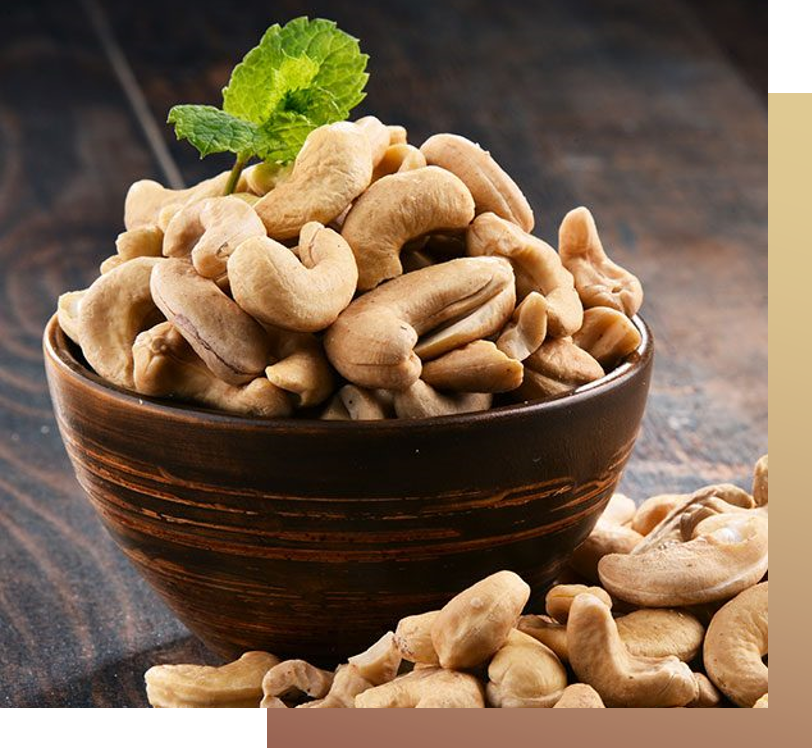
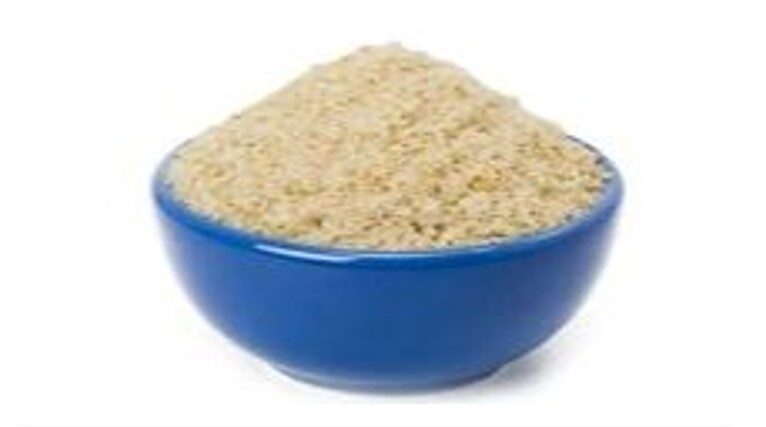
Cashwe Flour

BBQ Cashews

Ranch Cashews

Butter Toffee Cashew

Cashew Crunch

Cinnamon Cashews

Dark Chocolate-Covered Cashews

Honey Roasted Cashews

Unsweetened Cashews Milk

Roasted Cashews (50% Less Salt)

Milk Chocolate-Covered Cashews

Dry Roasted Whole Cashews (Unsalted)

Cashwe Flour

BBQ Cashews
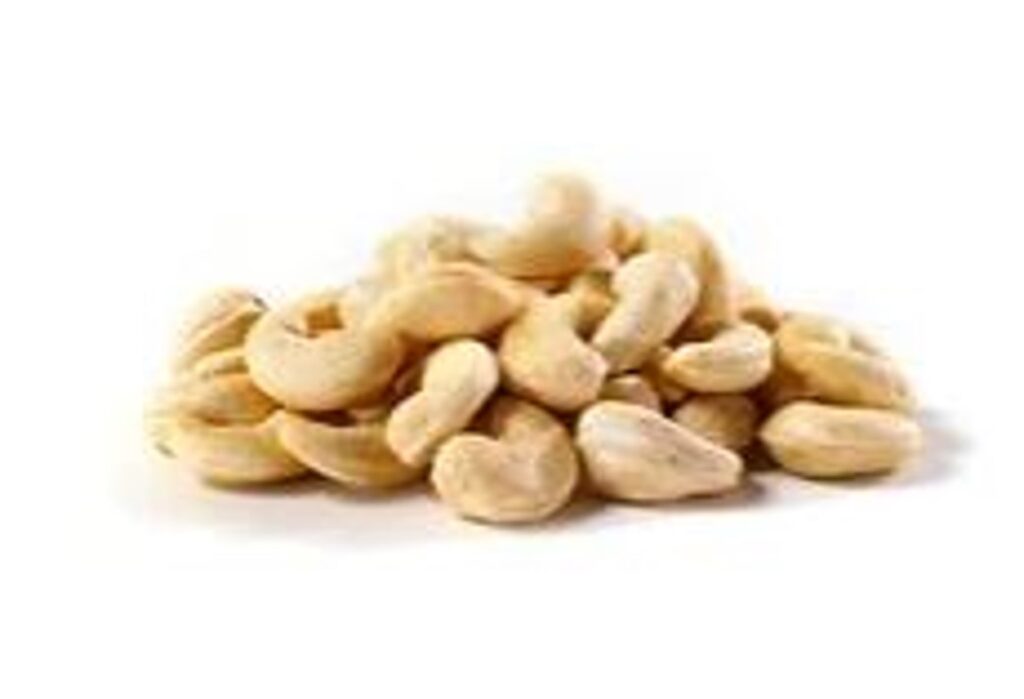
Ranch Cashews

Butter Toffee Cashew

Our current 6,000+ out-grower cashew farmer operations predominantly in Africa’s west coast consolidate the raw cashew nuts for shipping to our commercial processing facility here in the USA – the shortest route in the history of the cashew processing business, supplying the largest cashew consumption market in the world.

It will take a maximum of 18 days to transport the cashews from Ghana across the Atlantic via Port Freeport TX. We will roast & finish the cashews, as well as make Cashew Nut Oil for Industrial Use, snack and health bars in our facilities and kitchens

Directly from our U.S. based facility, we will distribute to U.S. based wholesale buyers with expansion geared for EU Markets at a premium.
Our machinery will produce 50 Metric Tons of edible cashew nuts per shift.
We will process 90 Metric Tons of CNSL (oil) per day.
Note: 100MT per shift cashew processing machinery to yield about 24MT of edible cashew kernels.
We are expanding to supply domestic demand at a competitive cost., adding value to our existing outgrower operations in Ghana and Tanzania.
Our goal is to capture 10% to 30% of the local U.S. market in our first 3 years and grow further each year, adding a second facility as needed.

We are opening the first USA based cashew processing facility in Parsons, KS to supply USA, Canada, Mexico, Central America & South America.
Our operations will reduce the logistics and additional broker markup through our existing out-grower farmers saving $$$ every part of the process. We DO NOT UTILIZE brokers and/or other third parties!
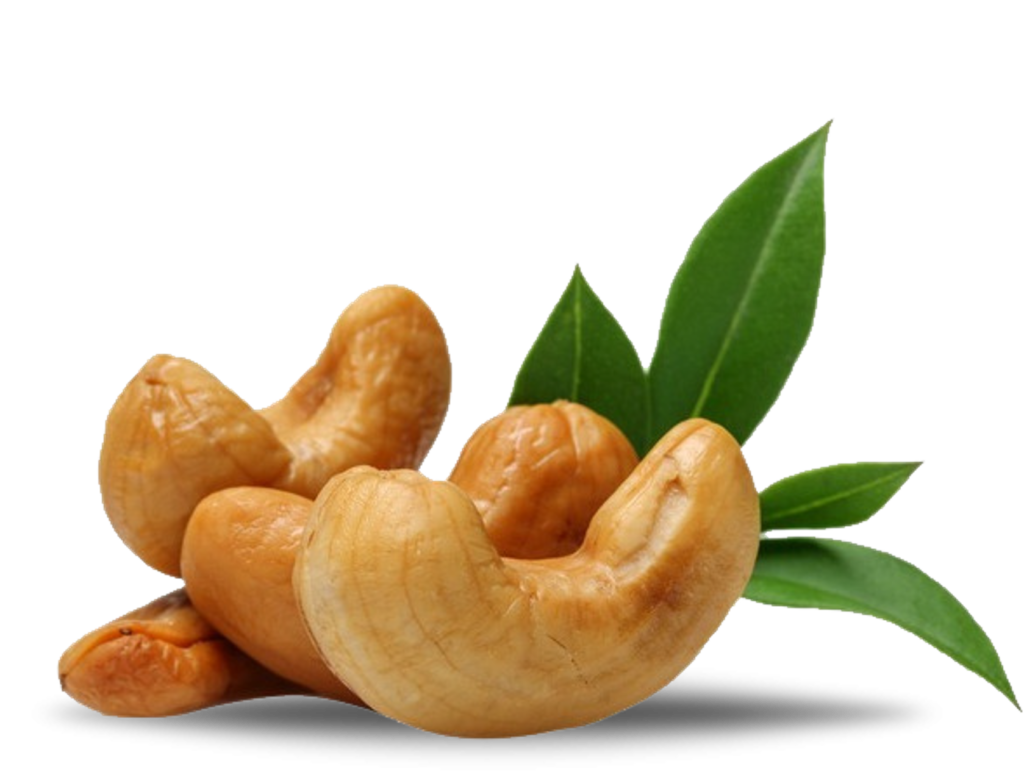

The GAV Foundation is our strategic partner, dedicated to uplifting the cashew farming communities in our cashew farmer communities in Africa. Through targeted investments, we aim to create long-term positive change.
Key Initiatives:
White Whole Grades (W)
Scorched Whole Grades (SW)
Butts (B)
Splits (S)
Pieces (P)
Scorched Pieces (SP)